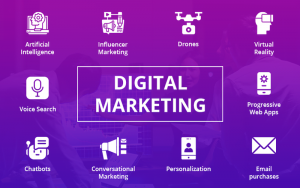Advanced SEO Strategy That Gets Guaranteed Results

Advanced SEO Strategy
Advanced SEO strategies focus not only on driving traffic but also on achieving results in terms of conversions, user engagement, and authority building. Here’s an advanced SEO strategy guide to get tangible results:
Also Read:- Questions and Answers for Advanced SEO Topics – From Semantics to Technical SEO
- Deep Keyword Research & Analysis:
- Long-Tail and LSI Keywords: Don’t just target primary keywords; long-tail and LSI (Latent Semantic Indexing) keywords can attract highly specific traffic.
- Competitor Analysis: Use tools like Ahrefs or SEMrush to identify where your competitors rank and the keywords they’re targeting.
- Content Depth & Quality:
- Comprehensive Coverage: Ensure that the content covers the topic in-depth and provides value.
- E-A-T (Expertise, Authoritativeness, Trustworthiness): This is especially crucial for YMYL (Your Money Your Life) sites. Display credentials, cite trusted sources, and keep content updated.
- Technical SEO:
- Site Speed: Employ tools like Google PageSpeed Insights and GTmetrix. Consider using a Content Delivery Network (CDN).
- Mobile Optimization: Ensure your site is mobile-responsive.
- Schema Markup: Use schema to help search engines understand the context of your content.
- Advanced Link Building:
- Skyscraper Technique: Create content that’s superior to top-ranking posts and then reach out to sites that link to inferior content.
- Guestographics: Use infographics as a guest posting asset.
- Broken Link Building: Find broken links on websites and suggest your content as a replacement.
- Internal Linking with Intent:
- Use Descriptive Anchor Text: Ensure that anchor text is relevant to the linked content.
- Link Deep: Don’t just link to your homepage or main service pages. Link to deep pages, such as blog posts or detailed service descriptions.
- User Experience & Engagement:
- Monitor Bounce Rate & Dwell Time: These metrics can signal to search engines how valuable users find your content.
- Interactive Content: Quizzes, polls, or interactive infographics can increase engagement.
- Content Updates & Refreshes:
- Update Outdated Content: Keeping content fresh can signal to search engines that your site is current and relevant.
- Repurpose Content: Turn blog posts into videos, infographics, or podcasts.
- Voice Search Optimization:
- Question-Based Queries: People often phrase voice searches as questions.
- Local SEO: Many voice searches are local in nature, e.g., “restaurants near me.”
- Video SEO:
- Engaging Thumbnails: Increase CTR from search results.
- Optimized Video Descriptions: Include keywords and timestamps.
- Localized SEO:
- Google My Business: Ensure your profile is complete and regularly updated.
- Local Citations: Ensure consistent NAP (Name, Address, Phone Number) across all platforms.
- Cluster Content Strategy:
- Pillar Content: A comprehensive piece on a particular topic.
- Cluster Content: More specific articles that delve into subsections of the pillar content. They link back to the pillar article and vice versa.
- Use Advanced SEO Tools & Analytics:
- Google Search Console & Google Analytics: Monitor site performance and user behavior.
- Heatmaps: Tools like Hotjar or Crazy Egg can show where users focus on your pages.
- Stay Updated: SEO is dynamic. Regularly update your knowledge about algorithm updates and adjust your strategies accordingly.
Final Words
Always remember that the ultimate goal of SEO is to provide value to users. If you consistently prioritize user needs and stay updated with the latest SEO trends, you’re likely to see sustained success.








